- Home
- Michael Connelly
The Best American Mystery Stories 2003
The Best American Mystery Stories 2003 Read online
~ * ~
The Best American
Mystery Stories 4
Ed. by Michael Connelly
No copyright 2012 by MadMaxAU eBooks
~ * ~
Contents
Foreword
Introduction by Michael Connelly
DOUG ALLYN
The Jukebox King
CHRISTOPHER CHAMBERS
Aardvark to Aztec
CHRISTOPHER COOK
The Pickpocket
JOHN PEYTON COOKE
After You’ve Gone
JAMES CRUMLEY
Hostages
o’neil de noux
Death on Denial
PETE DEXTER
The Jeweler
TYLER DILTS
Thug: Signification and the (De) Construction of Self
MIKE DOOGAN
War Can Be Murder
BRENDAN DUBOIS
Richard’s Children
ELMORE LEONARD
When the Women Come Out to Dance
ROBERT MCKEE
The Confession
WALTER MOSLEY
Lavender
JOYCE CAROL OATES
The Skull
GEORGE P. PELECANOS
The Dead Their Eyes Implore Us
SCOTT PHILLIPS
Sockdolager
DANIEL STASHOWER
The Adventure of the Agitated Actress
HANNAH TINTI
Home Sweet Home
SCOTT WOLVEN
Controlled Burn
MONICA WOOD
That One Autumn
Contributors’ Notes
Other Distinguished Mystery Stories
~ * ~
Foreword
Each volume of this series of Best American Mystery Stories has certain peculiarities and certain similarities as it is being compiled. Some of these similarities will be immediately evident to those who have read several editions.
First, and perhaps most important, is that one will be struck by the extraordinarily high quality of the fiction between the covers. Whether by established authors, lesser-known writers, or first-timers, the excellence of the prose cannot be denied. It is not surprising, then, to realize that many of the stories selected for these books were first published in literary periodicals, which sometimes have a very small circulation. It is these little magazines that search for experimental work, often accepting material that would be unlikely to find a wide mainstream audience. Frankly, some of it is awful. Experiments that, if successful, should never have been attempted, or, more likely, were poorly conceived and had no chance of being successful. But sometimes they work, and they are wonderful. Most are not mysteries in the way we usually think of them, but some slip into the genre because of my very liberal definition of “mystery” (any work in which a crime, or the threat of a crime, is central to the theme or plot). Most volumes of BAMS have one or two of these.
Another similarity of the books in this series is the apparent ubiquity of Joyce Carol Oates, who remains one of the brightest colors in the rainbow of American letters. She has appeared in six of the seven annual volumes of BAMS. Nobody makes it into these books based on their fame or popularity, and she is no different. It is about the work, and she simply will not be denied. “The Skull” made it into this book, but another of her stories, “Angel of Wrath,” was nominated for an Edgar Allan Poe Award by the Mystery Writers of America. It could have gone either way.
Yet another similarity from book to book is the range of subgenres of the very broad category of mystery. Styles have ranged from very hard-boiled to quite cozy, but an even greater range has been from the very structured detective story to capers to character studies to espionage fiction. There have been stories of policemen and stories of criminals; they have been set right next door and also in the farthest corners of the globe. There have been happy endings and those that almost force a sob. It seems reasonable to say, then, that one similarity is that every book is so different from every other one.
There are similarities that the reader can never know, however, because they have to do with the actual compilation of each volume and the personal contact I have with authors. As you might expect, most are delighted to have been selected for the honor of being included in these wonderful books. Two didn’t want to be included. (E. L. Doctorow didn’t say why, and his excellent story found its way into Best American Short Stories last year; T. Coraghessan Boyle said he wasn’t a mystery writer and didn’t want to be identified as one, though he had written a splendid crime story.) My favorite response, however (and it’s happened every year), is from the authors who are excited to be included but who never realized they had written mysteries.
No, no, I explain, a mystery is not merely a detective story, which is just one subgenre of this rich and diverse literary form. Then I give them my definition and they say, well, then, they guess they’ve written a mystery. Each of those stories has dramatically enhanced the volumes in which they appeared, and if you have previous volumes in this series, it might be an interesting exercise to figure out which are those stories. (Hint: all were published initially in literary journals.)
And that reminds me. Back in the Age of Enlightenment, when I first got into the world of publishing, publishers kept books in print practically forever. Nowadays, it is very common for publishers to let a hardcover edition go out of print within a year of publication. Houghton Mifflin deserves a little recognition and a lot of credit for keeping virtually every book in this series in print. The accountants would probably tell them it is not an economically wise practice, but they do it anyway, which is definitely cool.
Speaking of cool, Michael Connelly did a terrific job as guest editor, which should be no surprise except that until a few years ago he had never even written a short story, and now he has developed a great affection for this difficult but rewarding form.
Also, as I can never fail to do, a sincere word of thanks and admiration to Michele Slung, who did so much of the preliminary reading for this and every volume. Her skilled speed, intelligence, and taste make it possible to produce these projects on time. It’s not just reading the 1,000-1,200 mystery stories but going through many, many hundreds of magazines and finding which of the fiction falls into the mystery category. Title alone will not do it, and if you don’t believe me, check the table of contents for “Thug: Signification and the (De) Construction of Self’ and decide if it leaps out at you as a crime story. Ditto “Aardvark to Aztec,” “Home Sweet Home,” and “That One Autumn.”
The process is the same every year because it seems to work pretty well. After I’ve selected the top fifty stories of the year (in my opinion, anyway, which is all anyone can offer), the guest editor reads them all and picks twenty favorites. The others are listed in the back of the book as “Other Distinguished Mystery Stories of [the year].”
Although we read every consumer periodical and hundreds of little magazines, as well as all anthologies or short story collections with original material and electronic publishing sites that offer fiction, we recognize that we might miss something worthy. Therefore, if you are an author, editor, publisher, or someone who cares about one, you are encouraged to submit stories. The original publication or a tearsheet is fine, or a hard copy if it appeared electronically. The date of the initial publication is vital, as well as a contact address. No unpublished material will be considered, for what should be obvious reasons. Please understand that no submissions can be returned. If you require an acknowledgment of receipt, please enclose a self-addressed postcard.
To be eligible, a story must have been written by an American or a Canadian and first published in an Ame
rican or Canadian periodical or book in the calendar year 2003. The earlier in the year I receive material, the more warmly I regard it. Stories received after January 1, 2004, will not be considered.
Please send submissions to Otto Penzler, The Mysterious Bookshop, 129 West 56th Street, New York, NY 10019. Many thanks.
O.P.
<
~ * ~
Introduction
I drive A two-seater. It’s a drop-top sports car built low to the ground for better control and handling. All right, it’s an automatic with a pushbutton, electronic top. But that’s not the point. The point is that when the top’s down and I’m sailing through the curves along the bay, the wind cutting in behind my shades, I can’t think of a better car to be in. Sure, it’s so small, I can’t fit more than one suitcase into it. But again, that’s not the point. The point is performance and beauty. In a word, velocity.
The point is this is why I love the short story. Velocity. Room for one suitcase only. The short story deals with issues and themes large and small. But it does it succinctly and quickly. The short story is a car for the short track. Put the top down and power into the curves. If you’re going a long distance, get yourself a novel. Take the freeway and get yourself an SUV.
I drove seven SUVs before I ever tried a sports car. I found the difference amazing. You have to dig in to write a novel. You have to cover all the angles. You need a trunk big enough to carry a lot of baggage and extra supplies. Conversely, the short story is lean and mean and built low to the ground. Its ideas burn on high-test. They are spare and to the point.
What happened to me happened to many novelists I know. You push a few books out there, get them on the shelf, and get a bit of notice. Then comes the big question: “Have you ever thought about a short story?” One thing leads to another, and you leave the big car in the garage, and you’re out running around in a candy-apple-red sports car. It’s fun. It’s a change of pace. Nine out of ten doctors recommend it.
In these same pages last year James Ellroy said he wrote his first short story only to pay off a debt. After that, he repeatedly returned to the short form. Me, too. In fact, my guess is that the debt I paid with my first short story was to the same guy — but that’s another story. The point is I reluctantly tried it and then liked it. I ended up happy for the coercive genesis of it. I got hooked. I found the short story gave me balance. Elements of character and action and intrigue were all there. But in a spare form I found invigorating. I like the short story because you can conceive and complete in hours or weeks instead of months or years. It is a form I am sure I will always come back to. It has become part of how I evaluate and then execute my ideas as a writer.
This is not by any means to say that the short story is the easier road to take. The novel and the short story are simply different animals. Or, I should say, beasts. In the spare style of the short story is the bedrock philosophy of less is more. This makes the labor over each paragraph, each sentence, intensely important. Every word must count in the short story, so the pressure of the writing experience is ratcheted down tightly on the author.
What you have here in this collection are the examples in which the author has met that pressure and come out with a beauty. Each one of these stories has a well-tuned machine under the hood.
What I have tried to do here is put together a collection that showcases the power of the short story. These stories run from the traditional to the experimental, from deadly serious to deadly satirical, from established writing masters to voices I am betting you have not heard before but will likely hear again.
Each story is a sports car that handles superbly as it takes you to a destination you haven’t been to before. Pay attention to the nuances of the ride, the telling details of character and place and emotion and experience. Watch the way a man struggles with language and a new country, the way a man sees his long-lost daughter in the reconstructed face of a murder victim. The way a woman extracts justice after being betrayed. On and on. The way you never know how somebody is going to act or react.
These aren’t shiny sports cars. No way. There is a lot of road grit on these pages. There is violence and betrayal and justice meted out without the benefit of the justice system. There is also sympathy and hard-edged romance and a haunting sense of hope. I think that is why the mystery story is so important. It can carry all the ingredients, even if the car will hold only one suitcase.
We live in uncertain times. And as I write this it looks as if they are only going to become more uncertain. The mystery story is no antidote. But it certainly can act to reassure, to help make some sense of the world. Maybe only in a small way, but that is still better than in no way.
So let’s begin. Time to take a ride. You are in luck here. I think you will find everything you are looking for in these pages.
Michael Connelly
<
~ * ~
The Best American
Mystery Stories 4
~ * ~
DOUG ALLYN
The Jukebox King
from Alfred Hitchcock’s Mystery Magazine
August 1960. Worst heat wave since ‘43. The year of the riots.
No clouds. The sun cruising a sheet-metal sky, scorching Detroit’s mean streets all day long, hammering the heat down to the ancient salt mines beneath the city.
By noon the auto plants were like ovens. People said the temperature at Ford Rouge hit a hundred and thirty up near the steel ceilings. Overhead crane operators had to rotate down to the factory floor every half hour, panting like dogs, their clothes soaked.
Welders were working half blind, squinting through steamy visors, torches slippery with grease and sweat. And the painters in the infrared booths? Hell on earth.
But the assembly lines never stopped. Never even slowed down.
Nightfall brought no relief. Black tar bubbling in the streets and alleys like grease on a griddle, black folks boiling out of their tenements and rowhouses. Restless and surly. And thirsty. Very thirsty.
Brownie’s Lounge on Dequinder was buzzing by seven, jammed tight by ten. Selling Stroh’s beer by the gallon. Straight up. No glasses. Shop rats guzzling the brew out of the pitchers. Getting high, feeling mighty. Ready to hear some blues.
John Lee Hooker’s trio came on at nine, kicking out jams on Brownie’s postage-stamp dance floor. Big John wailing on his old Harmony guitar, James Cotton on harmonica, and a pickup bass player.
No drummer. No need for one. If you can’t feel the beat when John Lee stomps his size 13 Florsheims on a hardwood dance floor, you’d best lie down. You might be dead.
Around midnight the crowd finally started to thin. Working men had to be up at four. Making Thunderbirds, making Fairlanes, making that overtime pay. The best way for a blue-collar black man to rise in this life. The UAW saved the crap jobs for blacks, but the bosses didn’t care if a man worked double shifts for time-and-a-half. Turning out Fords for Cadillac money.
By one-forty a.m. Brownie’s Lounge was down to a die-hard handful of customers.
Four white kids, blues fans from the University of Detroit, applauding wildly as John Lee closed his show with Smokestack Lightning.
A few couples still grinding each other on the dance floor, ignoring the beat, rocking to a rhythm of their hearts and loins. Hot to trot.
A few hookers gabbing near the door, too whipped to stroll the Cass Corridor for trade.
And at the bar? One old white man. A stone killer.
~ * ~
Moishe Abrams had wandered in a little after one, parked his wide ass on a stool at the end of the bar, his back to the wall.
Brownie spotted him instantly. Hard to miss Moishe. Most of Brownie’s regulars were black or beige, plus a few white hipsters. Blue collar. Or no collar.
But Moishe? A surly old white dude with coarse features. Built like a cement block, squat, square, and hard. Old-timey gray suit, wide tie, porkpie brim. Still dressing like swing was the thing.
Carolina was working the counter. A big woman, milk chocolate skin, a smile wide as a grand piano. She dressed like a man: tuxedo blouse, bow tie, and slacks. But nobody ever mistook her for one.
Brownie stood in the shadows of his office doorway, keeping an eye on Moishe. Watched him guzzle his first drink, then knock back another just as quick.
When Moishe swiveled on his stool to watch the band, Brownie motioned Carolina over to the waitress station. Leaned in close to her, keeping his voice low.
“The white dude at the end of the bar? He drinks free. On the house.”
“You sure?” Carolina frowned. “He’s already pig-drunk and he’s throwin’ down bourbon like Tennessee’s on fire.”

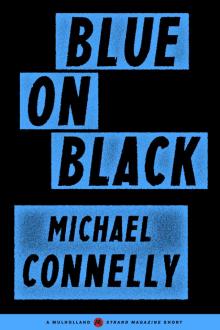 Blue on Black
Blue on Black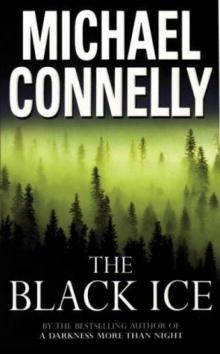 The Black Ice (1993)
The Black Ice (1993) Crime Beat: A Decade of Covering Cops and Killers
Crime Beat: A Decade of Covering Cops and Killers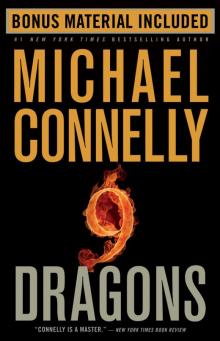 Nine Dragons
Nine Dragons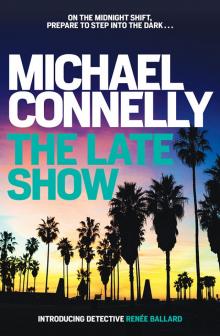 The Late Show
The Late Show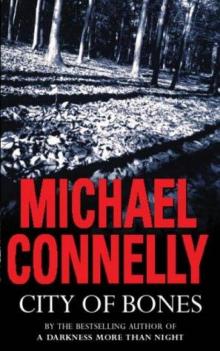 City of Bones
City of Bones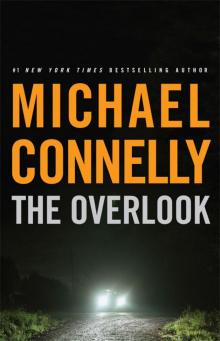 The Overlook
The Overlook The Crossing
The Crossing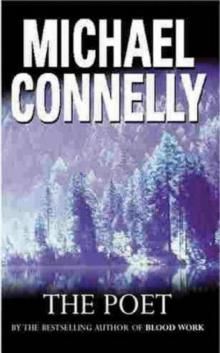 The Poet (1995)
The Poet (1995)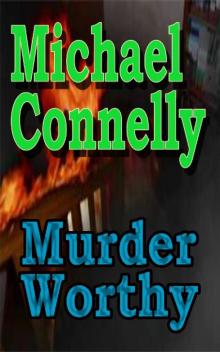 Murder Worthy
Murder Worthy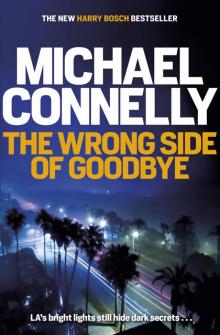 The Wrong Side of Goodbye
The Wrong Side of Goodbye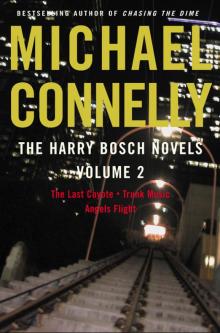 Harry Bosch Novels, The: Volume 2
Harry Bosch Novels, The: Volume 2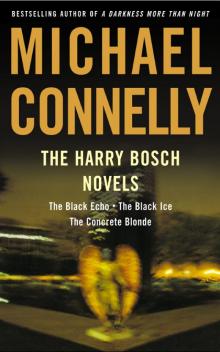 The Harry Bosch Novels
The Harry Bosch Novels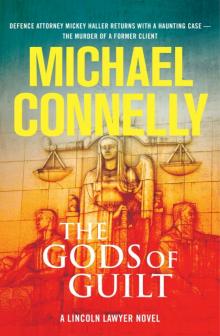 The Gods of Guilt
The Gods of Guilt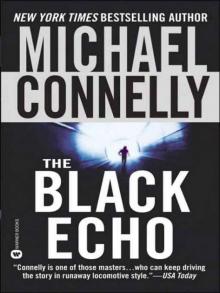 The Black Echo
The Black Echo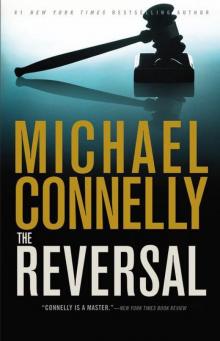 The Reversal
The Reversal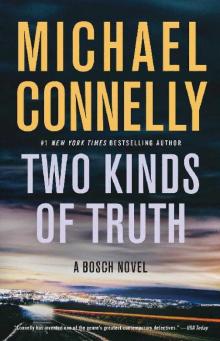 Two Kinds of Truth
Two Kinds of Truth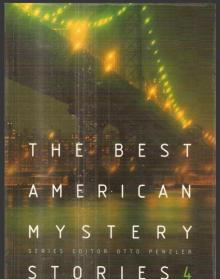 The Best American Mystery Stories 2003
The Best American Mystery Stories 2003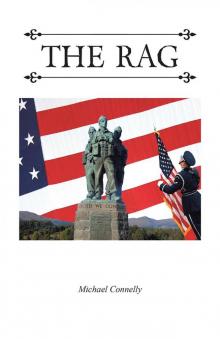 The Rag
The Rag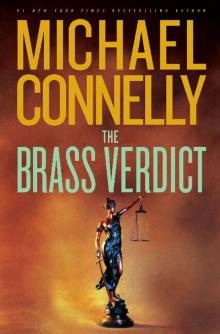 The Brass Verdict
The Brass Verdict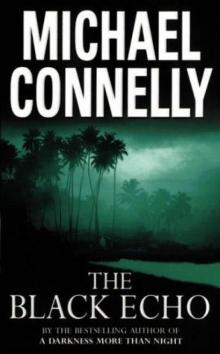 The Black Echo (1992)
The Black Echo (1992)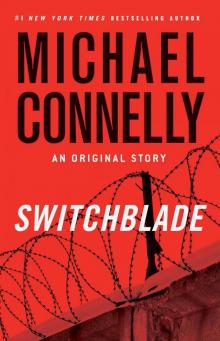 Switchblade
Switchblade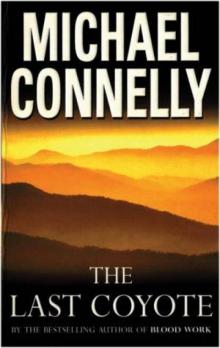 The Last Coyote
The Last Coyote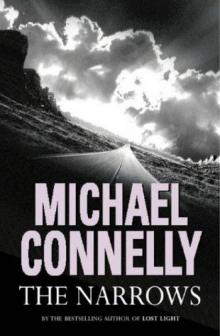 The Narrows
The Narrows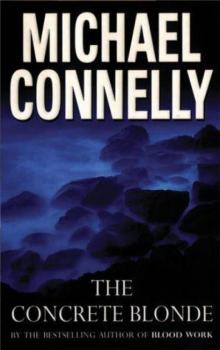 The Concrete Blonde (1994)
The Concrete Blonde (1994)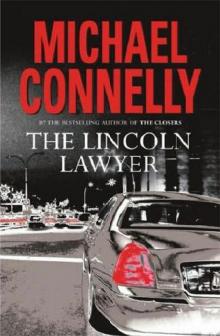 THE LINCOLN LAWYER (2005)
THE LINCOLN LAWYER (2005)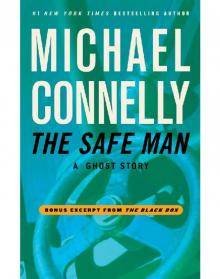 The Safe Man: A Ghost Story
The Safe Man: A Ghost Story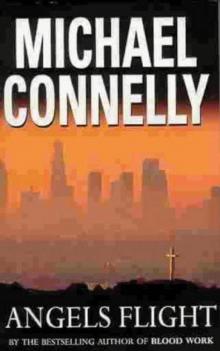 Angels Flight (1998)
Angels Flight (1998)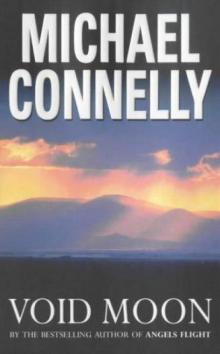 Void Moon
Void Moon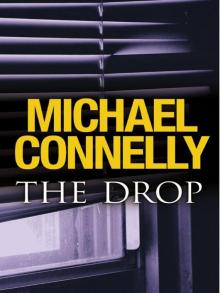 The Drop
The Drop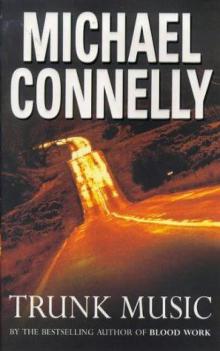 Trunk Music
Trunk Music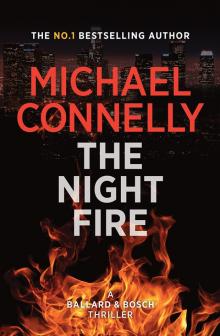 The Night Fire
The Night Fire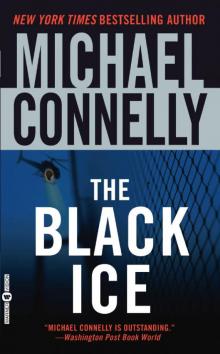 The Black Ice
The Black Ice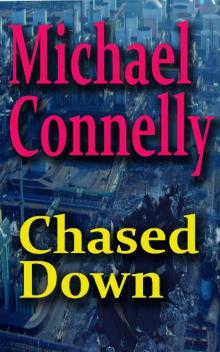 Chased Down
Chased Down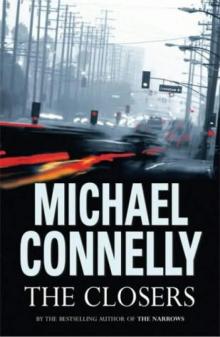 The Closers
The Closers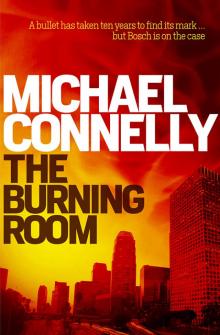 The Burning Room
The Burning Room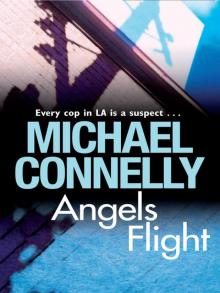 Angels Flight
Angels Flight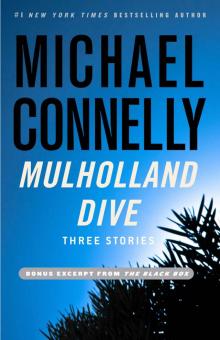 SSC (2012) Mulholland Drive
SSC (2012) Mulholland Drive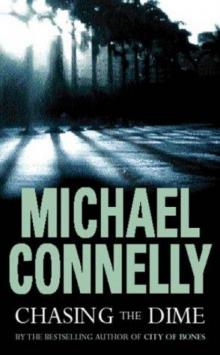 Chasing the Dime
Chasing the Dime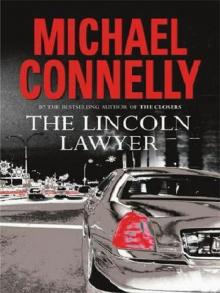 The Lincoln Lawyer
The Lincoln Lawyer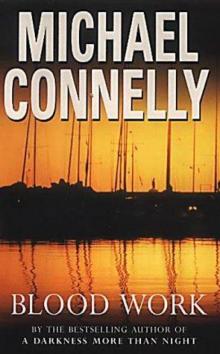 Blood Work (1998)
Blood Work (1998)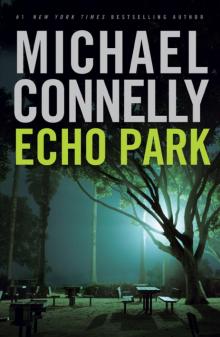 Echo Park
Echo Park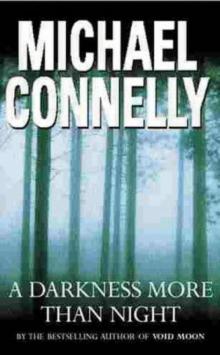 A Darkness More Than Night
A Darkness More Than Night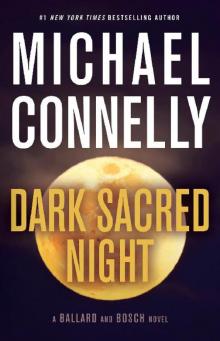 Dark Sacred Night - Ballard and Bosch #1;Renée Ballard #2
Dark Sacred Night - Ballard and Bosch #1;Renée Ballard #2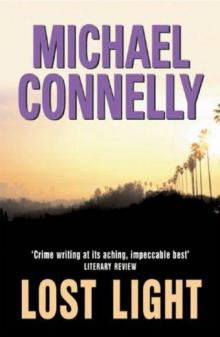 Lost Light
Lost Light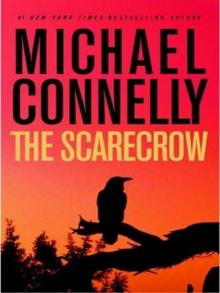 The Scarecrow
The Scarecrow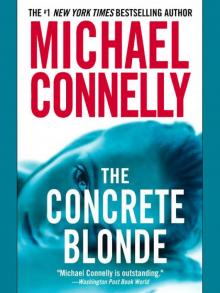 The Concrete Blonde
The Concrete Blonde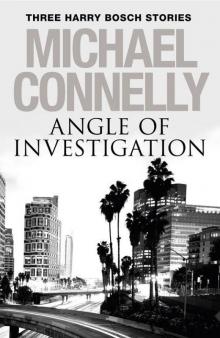 Angle of Investigation
Angle of Investigation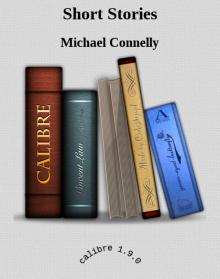 Suicide Run: Three Harry Bosch Stories
Suicide Run: Three Harry Bosch Stories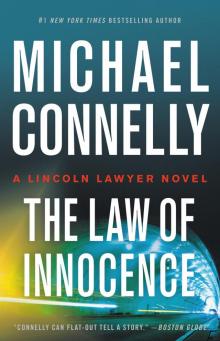 The Law of Innocence
The Law of Innocence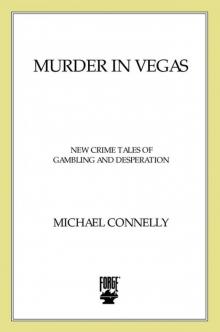 Murder in Vegas: New Crime Tales of Gambling and Desperation
Murder in Vegas: New Crime Tales of Gambling and Desperation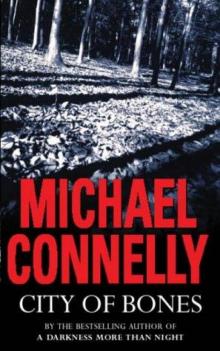 City Of Bones (2002)
City Of Bones (2002)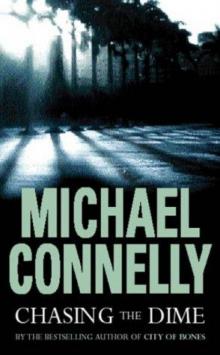 Chasing the Dime (2002)
Chasing the Dime (2002)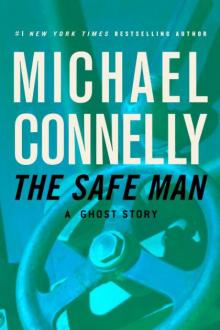 The Safe Man
The Safe Man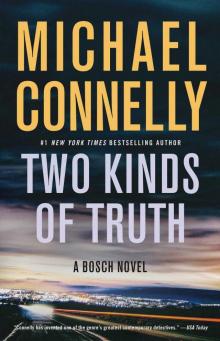 Two Kinds of Truth (A Harry Bosch Novel)
Two Kinds of Truth (A Harry Bosch Novel)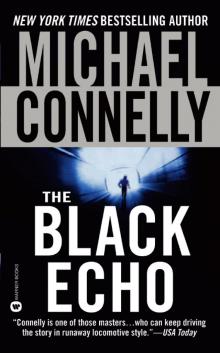 Harry Bosch 01 - The Black Echo
Harry Bosch 01 - The Black Echo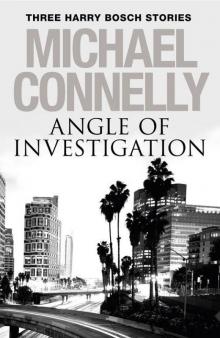 Angle of Investigation: Three Harry Bosch Short Stories
Angle of Investigation: Three Harry Bosch Short Stories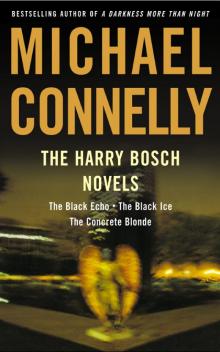 The Harry Bosch Novels Box Set 1
The Harry Bosch Novels Box Set 1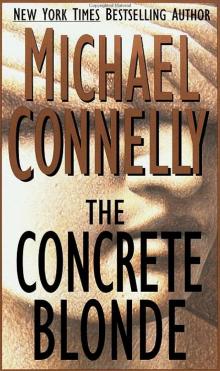 The Concrete Blonde hb-3
The Concrete Blonde hb-3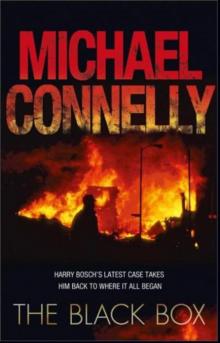 The Black Box hb-18
The Black Box hb-18 Short Stories
Short Stories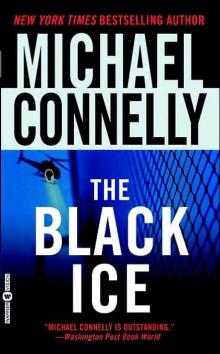 The Black Ice hb-2
The Black Ice hb-2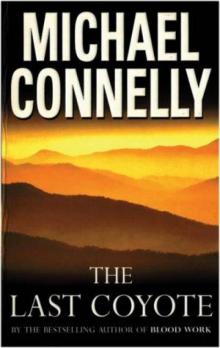 The Last Coyote (1995)
The Last Coyote (1995)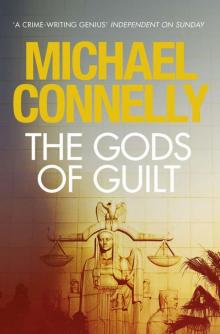 The Gods of Guilt mh-5
The Gods of Guilt mh-5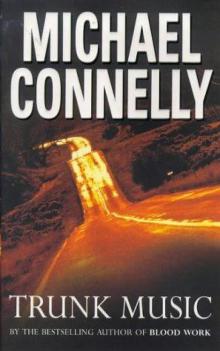 Trunk Music (1996)
Trunk Music (1996)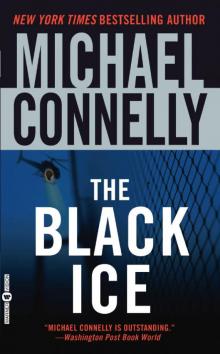 Harry Bosch 02 - The Black Ice
Harry Bosch 02 - The Black Ice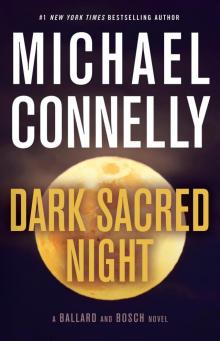 Dark Sacred Night
Dark Sacred Night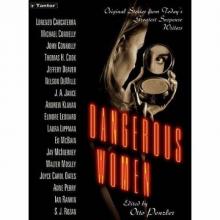 Cielo Azul
Cielo Azul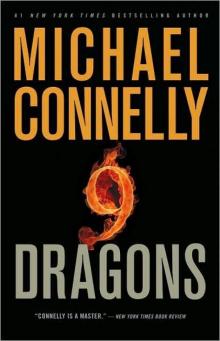 9 Dragons
9 Dragons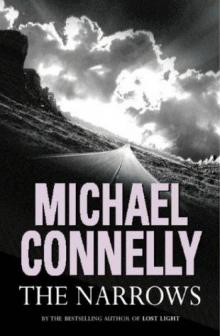 The Narrows (2004)
The Narrows (2004)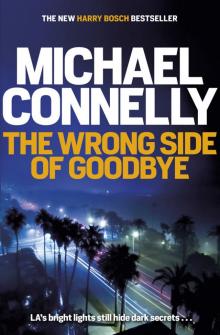 The Wrong Side of Goodbye (Harry Bosch Series)
The Wrong Side of Goodbye (Harry Bosch Series)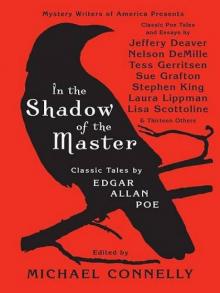 In The Shadow Of The Master: Classic Tales by Edgar Allan Poe
In The Shadow Of The Master: Classic Tales by Edgar Allan Poe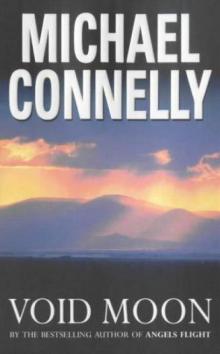 Void Moon (1999)
Void Moon (1999)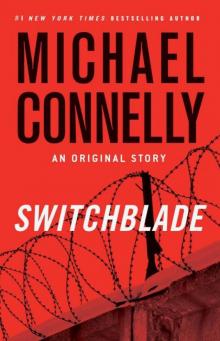 Switchblade: An Original Story (harry bosch)
Switchblade: An Original Story (harry bosch)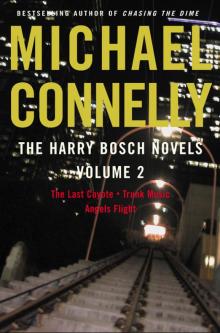 The Harry Bosch Novels, Volume 2
The Harry Bosch Novels, Volume 2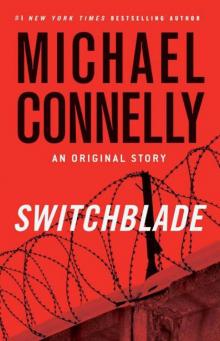 Switchblade: An Original Story
Switchblade: An Original Story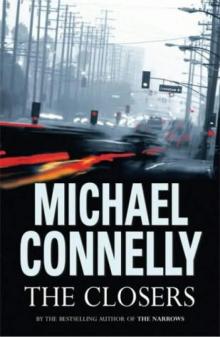 The Closers (2005)
The Closers (2005) Crime Beat
Crime Beat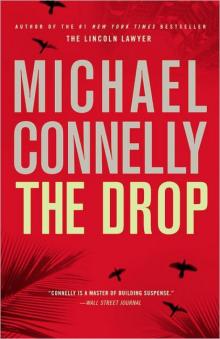 The Drop hb-17
The Drop hb-17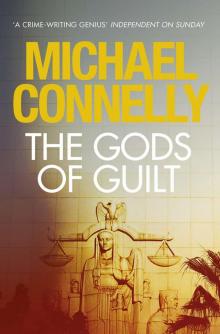 The Gods of Guilt (Mickey Haller 5)
The Gods of Guilt (Mickey Haller 5)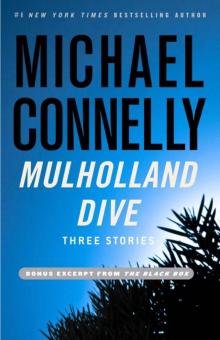 Mulholland Dive: Three Stories
Mulholland Dive: Three Stories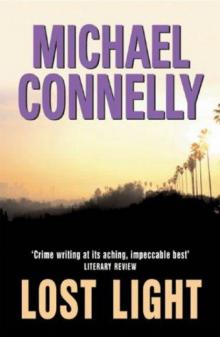 Lost Light (2003)
Lost Light (2003)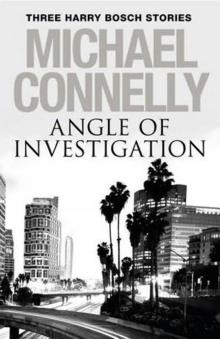 Angle of Investigation: Three Harry Bosch Stories
Angle of Investigation: Three Harry Bosch Stories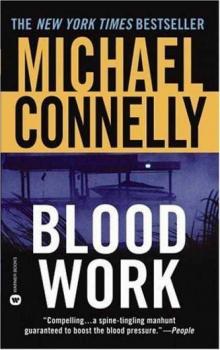 Blood Work
Blood Work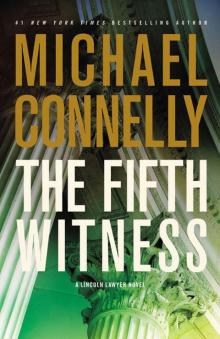 The Fifth Witness: A Novel
The Fifth Witness: A Novel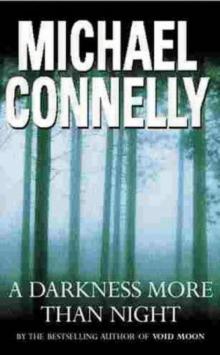 A Darkness More Than Night (2000)
A Darkness More Than Night (2000)